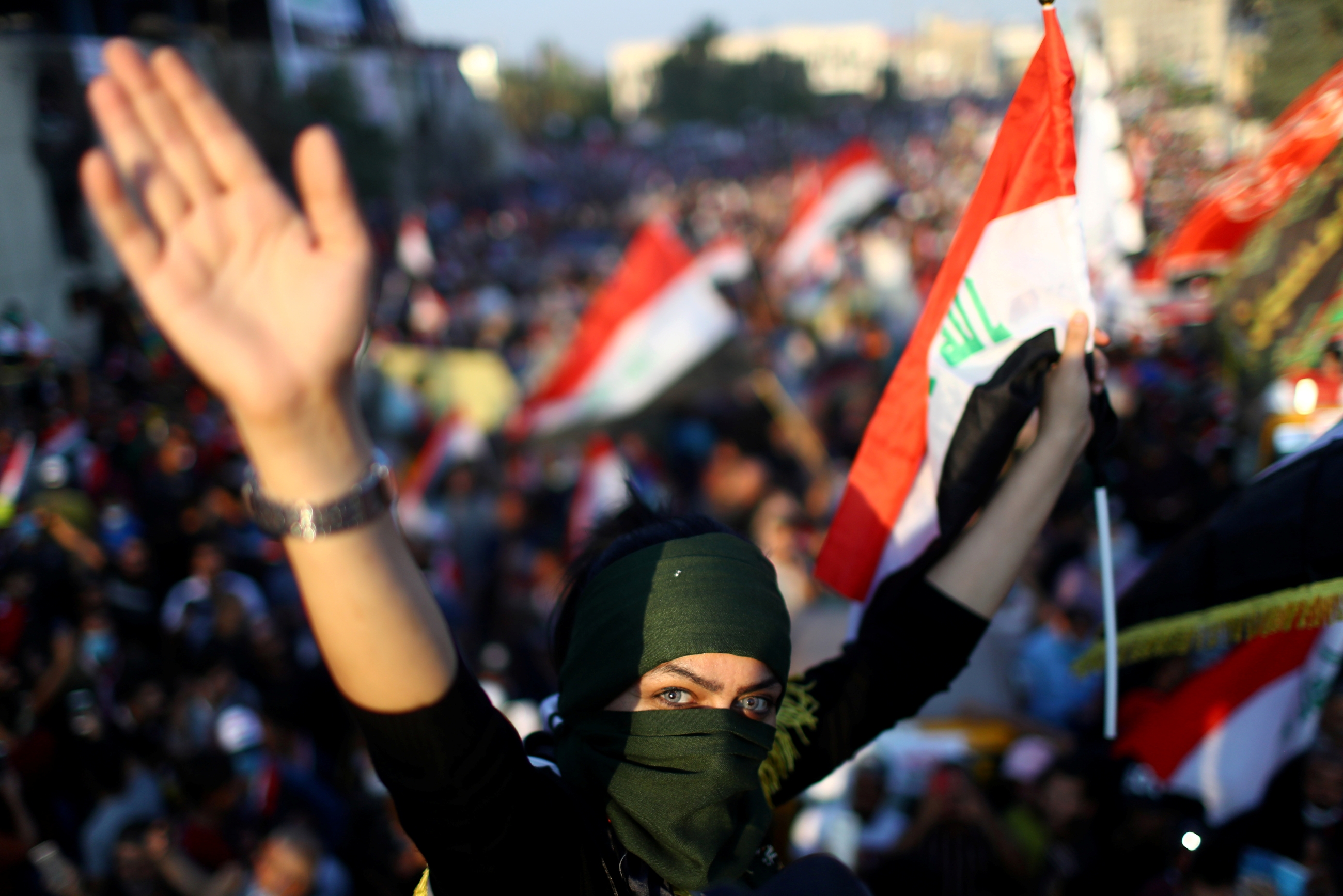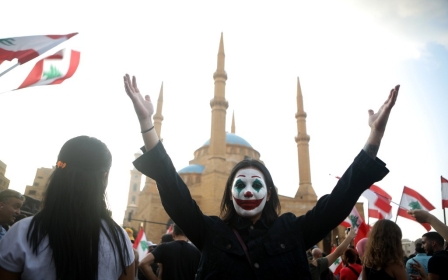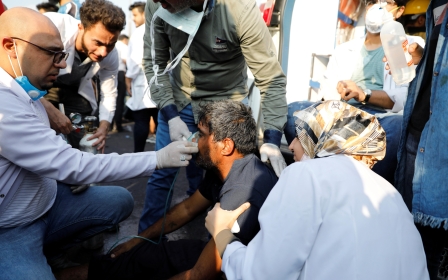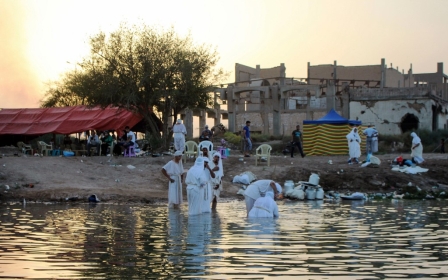Five killed in Baghdad as thousands gather for protests

Thousands of anti-government demonstrators gathered in Baghdad on Friday, demanding an end to corruption, as a weeks-long campaign of demonstrations gained momentum in the Iraqi capital.
Five people were killed and dozens were injured during Friday's demonstration in Baghdad's Tahrir Square, Reuters news agency reported. At least 250 people have been killed since the protests began on 1 October.
Amid growing anger against the country's ruling elites, Grand Ayatollah Ali Sistani, an influential Shia cleric, warned security forces on Friday against using violence to disperse protesters.
'The Government of Iraq should listen to the legitimate demands made by the Iraqi people who have taken to the streets to have their voices heard'
- Mike Pompeo, US secretary of state
In a sermon read out by his spokesman in the southern city of Karbala, Sistani condemned "subjecting peaceful protesters to any kind of unjustifiable violence", calling to holding accountable those who had attacked protesters throughout Iraq.
The grand ayatollah also rejected "regional and international" interference in Iraqi affairs, several Arabic media outlets reported.
New MEE newsletter: Jerusalem Dispatch
Sign up to get the latest insights and analysis on Israel-Palestine, alongside Turkey Unpacked and other MEE newsletters
US 'closely monitoring the situation'
Sistani's remarks came two days after Iran's Supreme Leader Ali Khamenei called on protesters in Iraq and Lebanon to pursue their demands within the "legal structure and framework" of their countries. He also suggested that the United States and Israel have plans to destabilise the two Arab nations.
Iran's influence in Iraq, which grew significantly after the US-led invasion that toppled then president Saddam Hussein in 2003, has also been a target of the protesters' anger.
On Friday, US Secretary of State Mike Pompeo urged the Iraqi government to address the "ongoing problems" in the country.
"The Government of Iraq should listen to the legitimate demands made by the Iraqi people who have taken to the streets to have their voices heard," Pompeo said in a statement.
"The United States is closely monitoring the situation and from the beginning we have called on all sides to reject violence."
Iraqi Prime Minister Adel Abdul Mahdi has conveyed that he is ready to step down if lawmakers find a suitable replacement.
"The prime minister had previously agreed to submit his resignation, if the blocs agree on an acceptable replacement in order to adhere to constitutional and legal frameworks," Iraq's President Barham Salih said in a televised speech on Thursday.
Iraq adopted a parliamentary system after the American-led invasion. The prime minister, who acts as head of state, is chosen by members of parliament elected directly by the people.
'They fire on us'
The government had announced a series of reforms, including promises of a new election law that would improve representation in the parliament. Still, those efforts failed to quell protests.
"We are peaceful yet they fire on us. What are we, Islamic State militants? I saw a man die. I took a tear gas canister to the face," Barah, a 21-year-old protester identified by first name only, told Reuters in Baghdad on Friday.
A day earlier, Amnesty International accused Iraqi authorities of using skull-piercing tear gas canisters "to kill rather than disperse protesters".
"All the evidence points to Iraqi security forces deploying these military-grade grenades against protesters in Baghdad, apparently aiming for their heads or bodies at point-blank range," said Lynn Maalouf, the rights group's Middle East research director.
"This has had devastating results, in multiple cases piercing the victims’ skulls, resulting in gruesome wounds and death after the grenades embed inside their heads."
Middle East Eye delivers independent and unrivalled coverage and analysis of the Middle East, North Africa and beyond. To learn more about republishing this content and the associated fees, please fill out this form. More about MEE can be found here.





